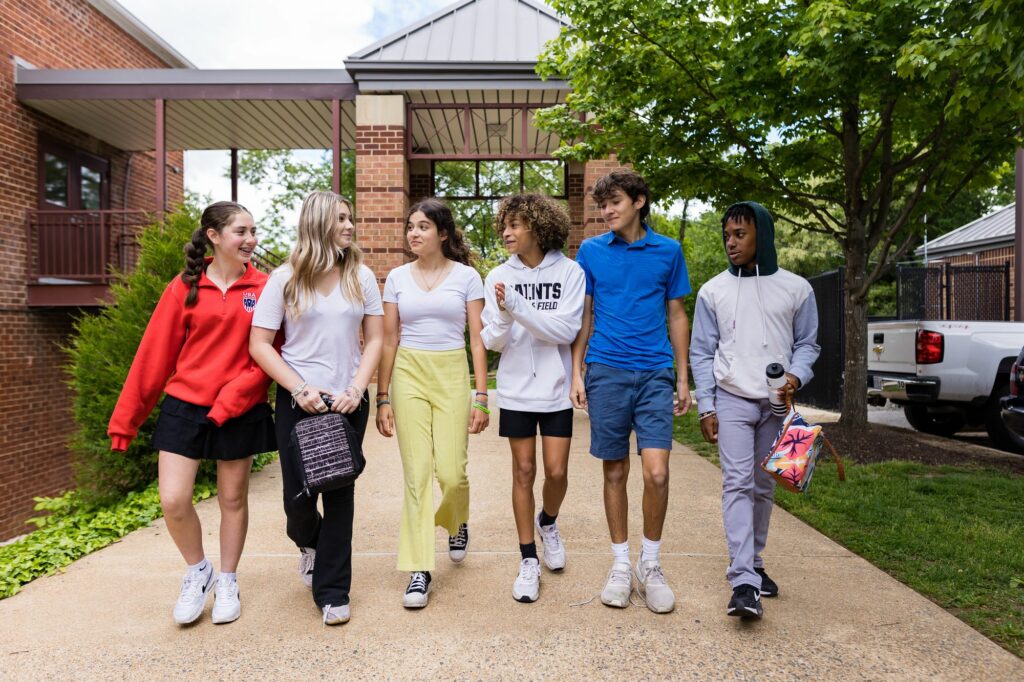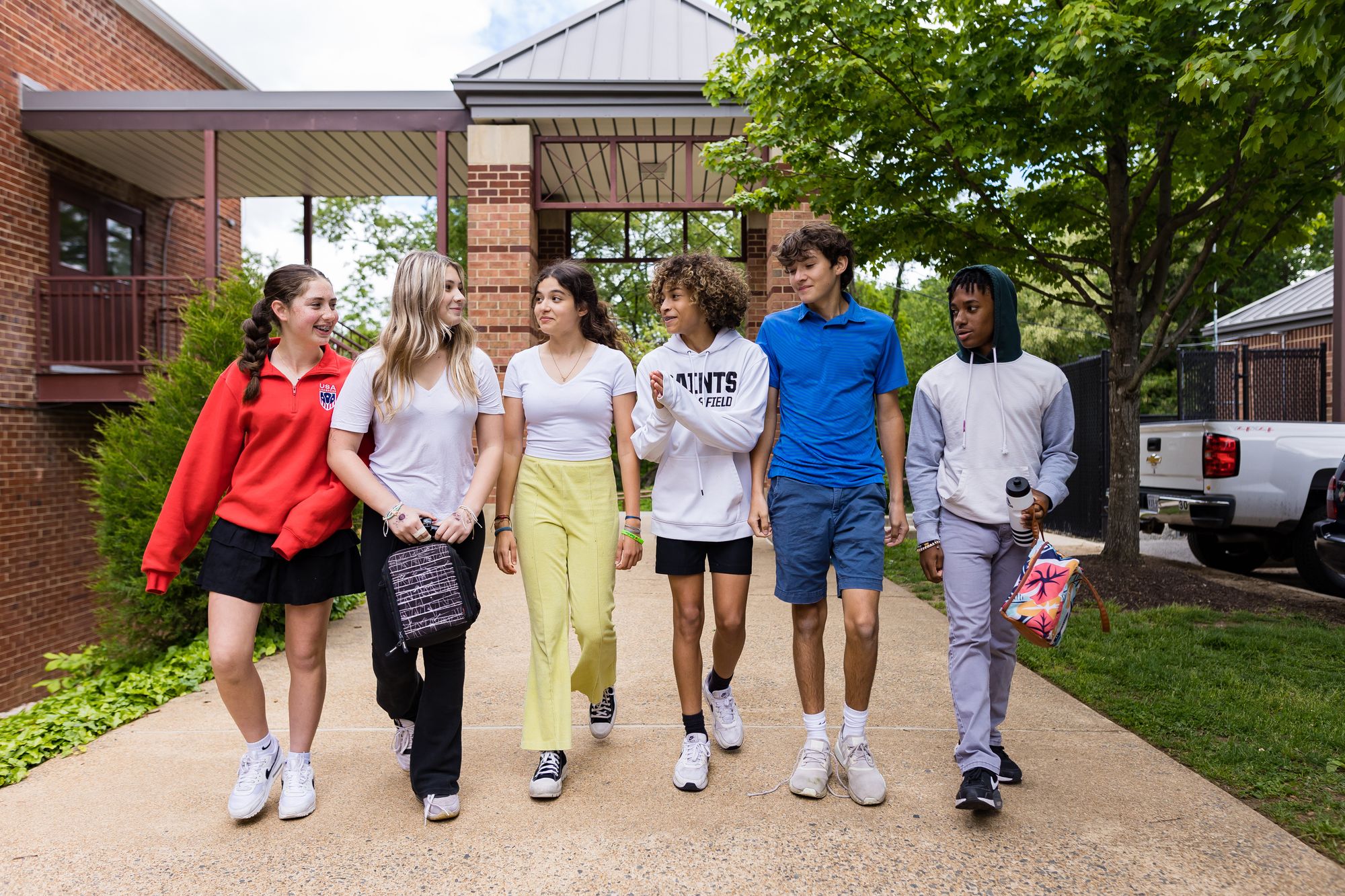Inspiring Middle School students to be a positive force in their school community
As an Episcopal school, we are called to love and honor one another despite our differences. We are called to practice empathy and understanding toward one another, always pursuing goodness, as well as knowledge. These are lofty goals—especially for middle school students. How do we work toward these goals in our middle school? One of the ways is through our Advisory program!
Some of the closest bonds students develop with faculty and peers are forged through their Advisory group. It helps to ensure each child at our Middle School feels a strong sense of belonging, is known, and is inspired and equipped to be a positive force in our school community and beyond.

Advisory groups, made up of about 10 students, spend intentional time together throughout the year. Each day, students check in with their advisors before first period and they have STAT (Student Teacher Appointment Time) with their advisories in the afternoon. Additionally, every Tuesday, students have dedicated Saints Advisory Program (SAP) time in the afternoon to participate in activities that support our community goals. Oftentimes, the readings and sermon in chapel relate to the topic to be explored, discussed and practiced during Saints Advisory Program time later that day. It follows an effective teaching method of learning about a concept, hearing a story or specific example with that concept and then working with or exploring that concept themselves by relating it back to their own life or community in some way.
The program sessions intentionally focus on our school’s five dispositions—qualities of mind and character. Throughout the year, the students explore the meaning of these dispositions. We strive to instill in them an understanding that their actions are powerful and can influence our school and the broader community.
- We are rooted.
- I acknowledge and am grateful for the ways others help me.
- I believe that I am responsible for the way that my actions affect the people and the environment around me.
- I am committed to the ideal of striving for justice and peace and respecting the dignity of every human being.
- We are empathetic.
- I treat others the way they want to be treated.
- I can recognize different perspectives and can empathize with someone even if their experience is different from my own.
- I can listen to others with respect and compassion. I understand that my presence is often the most important gift I can offer to my friends, family or even a stranger in need.
- We are understanding.
- I can learn about experiences that may be different from my own through books and the people I meet.
- I can identify certain advantages and disadvantages that people, including myself, may have based on aspects of their identity, including the place and circumstances into which they were born.
- I understand that many of the challenges individuals and communities face are connected to global systems, and I know how to investigate significant issues and conduct well-crafted research that will inform my understanding of how to work toward lasting solutions.
- We can grow.
- I can challenge myself by speaking up when I see or experience something that is unfair or unkind. And if I’m not sure, I can ask for help.
- I can challenge myself by standing up for myself and standing alongside others when faced with exclusion, prejudice and injustice.
- I can challenge myself by collaborating with diverse communities to build bridges of understanding across differences and to work for justice and peace for all people.
- We can act.
- There are things I can do to help other people. I can make my classroom and my community a better place for everyone.
- I know how to identify and analyze root causes and effects of social problems, and I can take informed and responsible action to improve conditions in my school, in my community and in the world.
- I believe that I can be an agent of positive change. My actions are consistent with what I believe, and I can educate and inspire others to be part of the solution.
Specific topics covered in Saints Advisory Program include:
- Coffee House sessions which provide a safe space for students to discuss relevant issues with their advisory. The sessions are sometimes organized into small groups with their advisory or with another advisory for discussions about friendships, gratitude, integrity, respect, courage, leadership, and mental health.
- Digital Citizenship and online decision-making
- Student-led conference preparation and goal setting
- Humans of SSSAS—learning about members of our community such as the Head of School, bus drivers, and others who students interact with
- Step in the Circle—recognizing and understanding our similarities and differences
- I Am poems and bumper sticker activity //www.youtube.com/embed/HfHV4-N2LxQ
- Take a seat, make a friend — valuing and building empathy for our fellow classmates
- Bonding activities: Mission Possible challenges, STEM challenges, Saints Pictionary, and more.
In summary, Saints Advisory Program is mission-driven; our faculty, staff, and administrators share a passionate belief in our school’s mission to pursue goodness as well as knowledge. This shared belief has been unifying and empowering as we work together to help our students in their pursuit of goodness.
